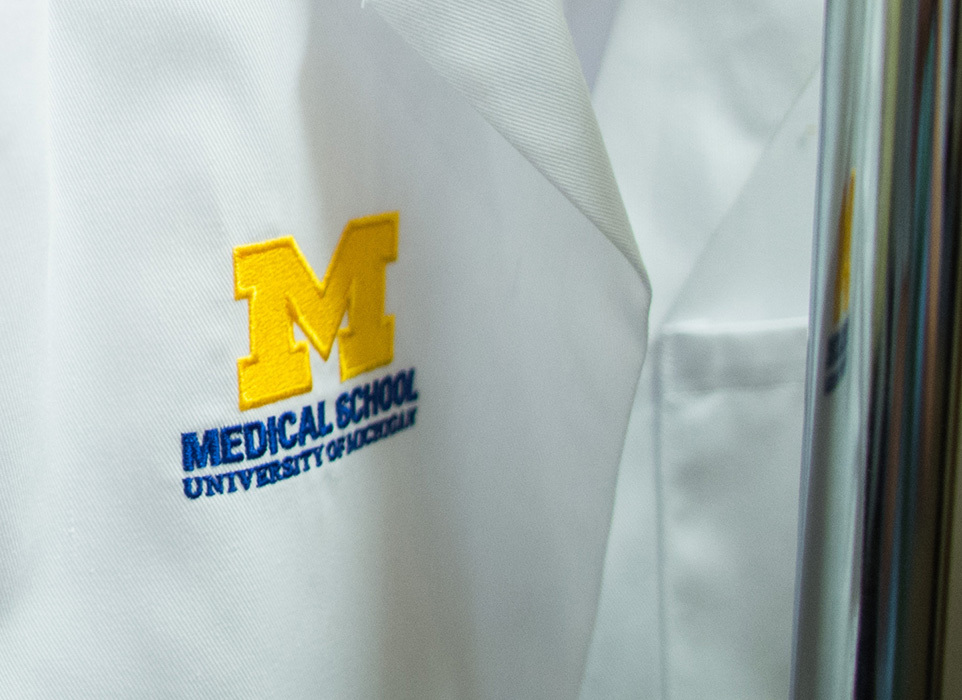
Assistant Research Scientist
Neurology
[email protected]
Available to mentor
Elizabeth M Tank

Assistant Research Scientist
-
Tseng Y-J, Malik I, Deng X, Krans A, Jansen-West K, Tank EMH, Gomez NB, Sher R, Petrucelli L, Barmada SJ, Todd PK. 2023 Jun 7;PreprintRibosomal quality control factors inhibit repeat-associated non-AUG translation from GC-rich repeats.
DOI:10.1101/2023.06.07.544135 PMID: 37333274 -
McMillan M, Gomez N, Hsieh C, Bekier M, Li X, Miguez R, Tank EMH, Barmada SJ. Mol Cell, 2023 Jan 19; 83 (2): 219 - 236.e7.Journal ArticleRNA methylation influences TDP43 binding and disease pathogenesis in models of amyotrophic lateral sclerosis and frontotemporal dementia.
DOI:10.1016/j.molcel.2022.12.019 PMID: 36634675 -
Chua JP, Bedi K, Paulsen MT, Ljungman M, Tank EMH, Kim ES, McBride JP, Colón-Mercado JM, Ward ME, Weisman LS, Barmada SJ. Curr Biol, 2022 Jun 20; 32 (12): 2581 - 2595.e6.Journal ArticleMyotubularin-related phosphatase 5 is a critical determinant of autophagy in neurons.
DOI:10.1016/j.cub.2022.04.053 PMID: 35580604 -
McMillan M, Gomez N, Bekier M, Li X, Miguez R, Tank EM, Barmada SJ. 2022 bioRxiv,PreprintRNA methylation influences TDP43 binding and disease pathogenesis in models of amyotrophic lateral sclerosis and frontotemporal dementia
DOI:10.1101/2022.04.03.486880 -
Maimon R, Ankol L, Gradus Pery T, Altman T, Ionescu A, Weissova R, Ostrovsky M, Tank E, Alexandra G, Shelestovich N, Opatowsky Y, Dori A, Barmada S, Balastik M, Perlson E. EMBO J, 2021 Sep 1; 40 (17): e107586Journal ArticleA CRMP4-dependent retrograde axon-to-soma death signal in amyotrophic lateral sclerosis.
DOI:10.15252/embj.2020107586 PMID: 34190355 -
Glineburg R, Zhang Y, Tank E, Barmada S, Todd P. 2021 bioRxiv,PreprintEnhanced detection of nucleotide repeat mRNA with hybridization chain reaction
DOI:10.1101/2021.01.06.425640 -
Chua J, Bedi K, Paulsen M, Ljungman M, Tank E, Kim E, Colón-Mercado J, Ward M, Weisman L, Barmada S. 2021 bioRxiv,PreprintMyotubularin-related phosphatase 5 is a critical determinant of autophagy in neurons
DOI:10.1101/2021.07.20.453106 -
Sidibé H, Khalfallah Y, Xiao S, Gómez N, Tank EMH, Di Tomasso G, Bareke E, Aulas A, McKeever P, Melamed Z, Destroimaisons L, Deshaies J-E, Zinman L, Parker A, Legault P, Tétreault M, Barmada S, Robertson J, Vande Velde C. 2020 bioRxiv,PreprintTDP-43 stabilizes transcripts encoding stress granule protein G3BP1: potential relevance to ALS/FTD
DOI:10.1101/2020.09.15.298455